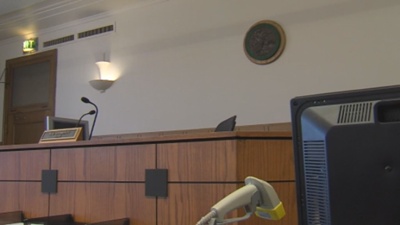SPRINGFIELD, Ill. (WAND) — Opponents of the SAFE-T Act claim the legislation was introduced and passed in the "darkness of night" during the final day of the lame-duck session in January of 2021. However, there were dozens of hearings about every element of the plan throughout 2020.
Most portions of the law were introduced by lawmakers over the past decade. Yet, those plans never received the same support the Illinois Legislative Black Caucus had in 2020 following the murder of George Floyd.
Caucus members said in 2020 that it was time to move from protests to progress. Now, Democrats and advocates are celebrating the monumental law while Republicans and law enforcement argue that Illinois will be less safe.
"Unfortunately, we've heard a lot of falsehoods about this historic law," said Speaker Emanuel "Chris" Welch. "We heard a whole lot of racist dog whistles too, and we're still hearing them. But, let's be clear. The Pretrial Fairness Act makes Illinois a national leader in criminal justice reform and we are making our communities safer."
State lawmakers passed several trailer bills to clean up language from the original SAFE-T Act. Although, that is more common than people may think as the General Assembly approves bills every year to address technical issues found in laws.
While the law eliminates cash bail, it also redirects people with low-level drug charges into substance use programs. The legislation also required new police standards for use-of-force and deescalation tactics.
"It was seven years ago when a bunch of us came together and walked into meetings and we were met with laughter and insults," explained Sen. Robert Peters (D-Chicago). "It was seven years ago when a bunch of us were told that what we were proposing was the impossible. But that was seven years ago."
Republicans sided with a coalition of law enforcement who saw many officers leave the profession quickly after Gov. JB Pritzker signed the criminal justice reform into law.
"The SAFE-T Act is not going to do anything that's going to help law enforcement officials actually reduce crime, reduce recidivism," said Senate Republican Leader John Curran (R-Downers Grove). "So, that's one of our charges here and we need to empower and support our law enforcement officials."
Roughly half of the state attorneys and sheriffs in Illinois filed lawsuits against the Pretrial Fairness Act. Many of those county leaders joined Republicans in spreading misinformation about the SAFE-T Act while advocates for and against the law produced attacks ads.
Yet, Democrats on the Illinois Supreme Court found that there is no mandate that cash bail is the only means to ensure defendants appear for trial or to protect the public. The decision wasn't surprising as the Illinois Supreme Court Commission on Pretrial Practices endorsed bail reform in 2020.
Republican lawmakers still believe the Pretrial Fairness Act is a poor public policy.
"The governor and his allies will be taking a victory lap on their first-in-the-nation criminal justice system overhaul," said Sen. Terri Bryant (R-Murphysboro). "But to me and many of the people we represent, defunding our courts, limiting victims services and making law-abiding citizens pay for criminals' bail with their taxes is just not justice."

The Illinois Supreme Court ruled that the law did not violate the state constitution, setting the effective date as September 18, 2023.
While Republicans claim the law violates the state's Crime Victims Bill of Rights, survivors helped draft the SAFE-T Act and the multiple trailer bills.
"The Pretrial Fairness Act substantially advances public safety by improving their ability - the ability of people who have endured sexual harm - it improves their ability to speak and be heard by the criminal legal system," said Kaethe Morris Hoffer, Executive Director of the Chicago Alliance Against Sexual Exploitation.
Sponsors hope judges, state attorneys and the public will rely on facts rather than fiction moving forward.
"Lower-level non-violent offenses are not going to be eligible for detention," said Rep. Justin Slaughter (D-Chicago). "But those higher level offenses will be indeed eligible for detention."
A limited number of felonies and a small number of misdemeanors will be eligible for detention if the state can prove defendants pose a specific, real and present threat to others. Those include non-probationable forcible felonies such as murder, attempted murder, armed robbery, home invasion and vehicular hijacking.
All forms of sexual assault, criminal sexual abuse, child pornography, human trafficking, and any charges relating to sexual misconduct with minors are also detainable charges. Domestic violence charges and non-probationable gun-related felonies fall under the same rule, according to the detention eligibility net.
"There are two truths in today's politics," said Senate President Don Harmon (D-Oak Park). "The first is that almost everyone agrees that the status quo must change. The second truth is that whatever change to the status quo you propose, it will almost assuredly be vilified as bad."
Senate Republicans hoped Democrats would agree to hold a special session to address concerns from law enforcement, judges and the public before the law could be implemented.
"When this law goes into effect, any detrimental effect this law has to public safety, to putting the community at risk, is going to be owned by the majority party," Curran added.
However, sponsors and advocates said they are proud of their hard work and dedication to reform leading up to implementation day.
Copyright 2023. WAND TV. All rights reserved.

